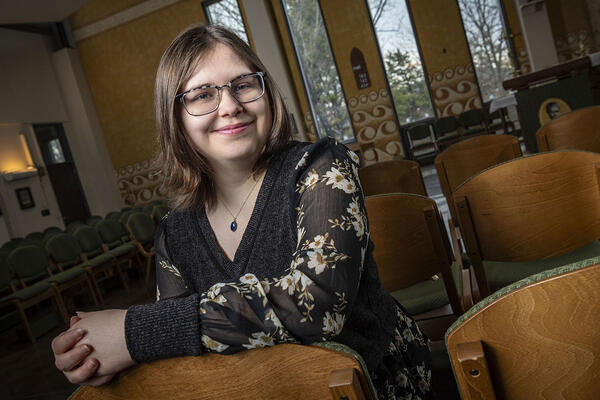You can prepare for a rewarding career and enjoy a rich liberal arts educational experience at Wright State’s School of Social Sciences and International Studies (SOSSIS).
Choose a degree program from among a wide variety of academic options in the major social sciences and related fields— anthropology, communication, geography, modern languages, political science, and sociology. Or pick one of our interdisciplinary programs, which offer you knowledge from many perspectives.
You can also add one of the SOSSIS minors to your existing major. Or, if you have completed your bachelor’s degree, join one of our graduate programs that will help you significantly impact your local community as you serve it—Master of Public Administration or International and Comparative Politics.
Your classes will all provide you with the knowledge and skills you need to succeed in a variety of career paths—critical thinking, research, and writing, among others. You will benefit from hands-on learning opportunities, including internships and study abroad options. You’ll also be prepared for graduate school, should you choose to continue your education.
Please contact us at the numbers on the bottom of our web pages or, even better, schedule a visit to our welcoming campus.
Degrees and Programs
Bachelor's Degrees
Combined Degrees
- Crime and Justice Studies, B.A. and Public Administration, M.P.A.
- Geography, B.S. and Public Administration, M.P.A.
- International Studies, B.A. and International and Comparative Politics, M.A.
- Political Science, B.A. and International and Comparative Politics, M.A.
- Political Science, B.A. and Public Administration, M.P.A.
- Sociology, B.A. and Public Administration, M.P.A.
Certificates
-
- Undergraduate or Graduate:
- Graduate:
Minors
Microcredentials
- Undergraduate
- Basic Geographic Information Science Undergraduate Microcredential
- Basic Medical French for Health Professions Undergraduate Microcredential
- Basic Medical Spanish for Health Professions Undergraduate Microcredential
- Basic Remote Sensing Undergraduate Microcredential
- Diversity in Crime and Justice Studies-Basic Undergraduate Microcredential
- Diversity in Crime and Justice Studies-Intermediate Undergraduate Microcredential
- Forensic Studies-Basic Undergraduate Microcredential
- Forensic Studies-Intermediate Undergraduate Microcredential
- Intermediate Geographic Information Science Undergraduate Microcredential
- Intermediate Remote Sensing Undergraduate Microcredential
- Unconventional War Undergraduate Microcredential
- Graduate





